(srpski) Fond za humanitarno pravo dobitnik Priznanja „Ban Josip Jelačić“ za 2021. godinu
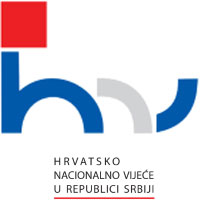
Sorry, this entry is only available in srpski.


Sorry, this entry is only available in srpski.
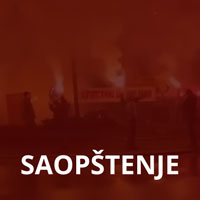
Sorry, this entry is only available in srpski.
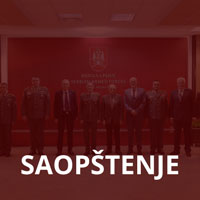
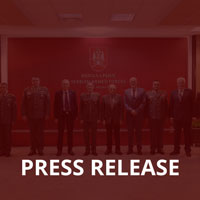 On the occasion honouring the retired General Vinko Pandurević with a commemorative military medal presented by the Chief of the General Staff of the Serbian Army, General Milan Mojsilović, the Humanitarian Law Center (HLC) wishes to remind the public that Pandurević was convicted before the International Criminal Tribunal for the former Yugoslavia (ICTY) for crimes against humanity and war crimes committed in July 1995 in Srebrenica, including killings, persecution and forced displacement. This decoration of Pandurević is just one of several examples of the already established practice of glorification of those convicted for war crimes, which is consistently being carried out by the state institutions of Serbia.
On the occasion honouring the retired General Vinko Pandurević with a commemorative military medal presented by the Chief of the General Staff of the Serbian Army, General Milan Mojsilović, the Humanitarian Law Center (HLC) wishes to remind the public that Pandurević was convicted before the International Criminal Tribunal for the former Yugoslavia (ICTY) for crimes against humanity and war crimes committed in July 1995 in Srebrenica, including killings, persecution and forced displacement. This decoration of Pandurević is just one of several examples of the already established practice of glorification of those convicted for war crimes, which is consistently being carried out by the state institutions of Serbia.
In 2021, the Republic of Serbia continued to support the revisionism of the wars of the 1990s. Constructing a narrative of “Serbia’s wars of liberation” – which attributes the character of a liberation to all the wars in which Serbia has participated throughout history – state institutions are ignoring or and minimising the court-established facts and overwhelming evidence of crimes committed during the wars of the 1990s.

 From December 6 to 10, 2021, the Fifth Regional School of Transitional Justice took place, organised by the Humanitarian Law Center (HLC). The lectures were held online this year.
From December 6 to 10, 2021, the Fifth Regional School of Transitional Justice took place, organised by the Humanitarian Law Center (HLC). The lectures were held online this year.
This year’s School was attended by 19 students from Serbia, Croatia, Bosnia and Herzegovina, and Kosovo. During 18 interactive sessions, the participants had the opportunity to listen to lectures on various aspects of transitional justice, as well as to enter into discussions with the lecturers.
The first day of the School was dedicated to introducing participants to the concept and history of transitional justice, and the nature of the international criminal justice system, as well as the ideological preparation for the wars of the 1990s in the former Yugoslavia. These topics were presented and discussed by Prof. Dr. Denisa Kostovicova, Olga Kavran, Dr. Ivan Jovanović and Prof. Dr. Dubravka Stojanović.

Sorry, this entry is only available in srpski.

Sorry, this entry is only available in srpski.
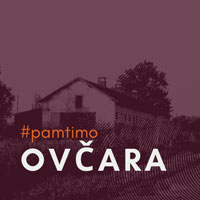
 Saturday, November 20, 2021, marks the 30th anniversary of the crime committed on the Ovčara farm near Vukovar, when members of the local Territorial Defence (TO) and Serb volunteers under the command of the Yugoslav People’s Army (JNA) killed 265 Croatian civilians and prisoners of war. On this occasion, the Humanitarian Law Center (HLC) reminds of the court-established facts about the crime in Ovčara and calls on the state institutions to pay tribute to the victims.
Saturday, November 20, 2021, marks the 30th anniversary of the crime committed on the Ovčara farm near Vukovar, when members of the local Territorial Defence (TO) and Serb volunteers under the command of the Yugoslav People’s Army (JNA) killed 265 Croatian civilians and prisoners of war. On this occasion, the Humanitarian Law Center (HLC) reminds of the court-established facts about the crime in Ovčara and calls on the state institutions to pay tribute to the victims.
Immediately after seizing Vukovar, on November 20, 1991, JNA members took the injured, ill, civilians and members of the Croatian Armed Forces from the Vukovar hospital and took them to hangars on the Ovčara farm, about five kilometres southeast of Vukovar. From the moment they were brought to Ovčara, members of the Vukovar TO and the “Leva Supoderica” unit, composed mainly of volunteers from the Serbian Radical Party, beat, humiliated and abused detained Croats, all in the presence of members of the JNA Military Police. In the evening, members of the JNA withdrew from Ovčara following the orders of Colonel Mile Mrkšić. Members of the Vukovar TO and the “Leva Supoderica” volunteer unit took detainees out of the hangar during the night between November 20 and 21, 1991 and took them in groups of 10 to 20 people toward Grabovo. There, they were shot standing in front of a previously prepared mass grave. In Ovčara, besides wounded members of the Croatian armed forces, civilians, women and children were killed: Ružica Markobašić (32), who was in the late pregnancy at the time, Janja Podhorski (60), Dragutin Balog (17) and Igor Kačić (16).
200 bodies were exhumed from the mass grave at the Grabovo site, and 193 victims were identified. Seventeen bodies of the victims were found in the surrounding graves, while the bodies of dozens of victims are still being searched for.

Sorry, this entry is only available in srpski.

Sorry, this entry is only available in srpski.